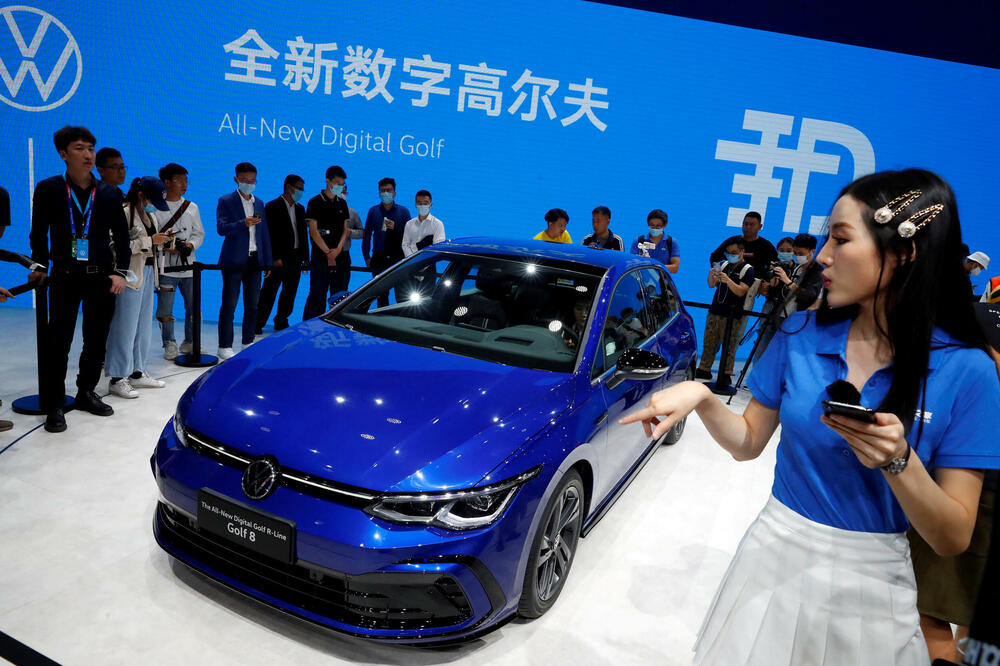The most important car fair in the world opened in Beijing. Because China is the most important market in the world for many car manufacturers. This especially applies to the German Volkswagen, whose biggest competitors are the Chinese.
No other country sells as many electric cars as China. And in no other country is there currently such a bitter price war to stay on top.
"In April, we witnessed another round of price reductions, and fierce competition in this regard will continue in the next few years," said Volkswagen board member Ralf Brandstätter ahead of the Beijing Motor Show, which opened this Thursday, April 25.
That's why Volkswagen wants to prepare for price competition in the next two years – and to keep its electric car business funded by good sales of cars with internal combustion engines. However, it also means two difficult years for Volkswagen.
Independent automotive expert Jürgen Piper says:
"Volkswagen Group is under enormous pressure in China and will have to face very strong competition. He should be able to turn things around in about two years. But it is, at this point, more of a hope than a firm belief."
BYD sells more cars in China than Volkswagen
China is the most important sales market for German carmakers Volkswagen, Mercedes and BMW – a market they have historically dominated with their internal combustion engines. Chinese manufacturers have never been able to keep up with the long tradition and sophisticated, delicate technology of cars made in Germany. But things look different now with electric cars. China's BYD, for example, has overtaken Volkswagen in car sales in China.
BYD stands for Build Your Dreams. Those dreams did come true on the green meadow of electric mobility, but they also came true with the help of state subsidies. Dreams have now materialized on the Chinese streets. Software development and technology clearly satisfy customers' tastes: BYD now has a 25 percent electric car market share. For the sake of comparison: electric car pioneer Tesla has slightly less than 12 percent, while Volkswagen has not even five. At the same time, BYD has a clear technological advantage with its batteries.
The speed of such developments should not be underestimated. This year in China, it is expected that 40 percent of all vehicles sold will be electric cars, and next year every second car sold in China will be electric.
Weak demand for electric cars worldwide
What makes matters worse, and not just for German manufacturers, is that China's previously booming car market has recently lost steam. The effects of such developments affect German manufacturers differently. While Volkswagen is currently struggling the most, manufacturers such as BMW and Mercedes are less affected. They are more represented in the market with expensive models - and as far as can be judged, they manage to keep up with other manufacturers.
As for electric car pioneer Tesla, many of its new cars are now waiting in factory parking lots for potential buyers. Relatively weak demand in China and competition from Chinese automakers offering cheaper models is leading to a discount battle among manufacturers. This severely limits margins.
However, sales of electric cars are also weakening in Germany. High inflation keeps people from buying new cars, charging infrastructure is patchy to say the least, and electric cars are still very expensive compared to those with internal combustion engines. To that should be added the weakening of the economy, which slows down demand, as well as relatively high interest rates, which make it difficult to buy new cars on credit. According to the latest data from the Federal Motor Transport Administration (KBA), the number of new registrations of purely electric cars fell by over 14 percent in the first quarter of this year.
Tesla reacted to the slow sales of its vehicles in the last few days: its eccentric boss Elon Musk announced that he wants to cut every tenth job in the company worldwide. Tesla reported its first quarterly sales decline in four years on Wednesday evening. Profits were cut in half. Deliveries of new vehicles in the first quarter of this year were also almost nine percent less compared to the previous one. Last weekend, Tesla once again lowered prices for some of its models.
And in Wolfsburg, the headquarters of Volkswagen, it is necessary to implement an action within the company. Volkswagen sent an internal announcement a few days ago and announced that it wants to reduce the costs of personnel in the administration by 20 percent. This can be achieved, for example, by extending partial retirement or severance pay for younger employees in the administration.
In any case, the reorganization of the car market continues to gain momentum. The next stop is ahead of us: the Beijing Auto Show.
Bonus video:





